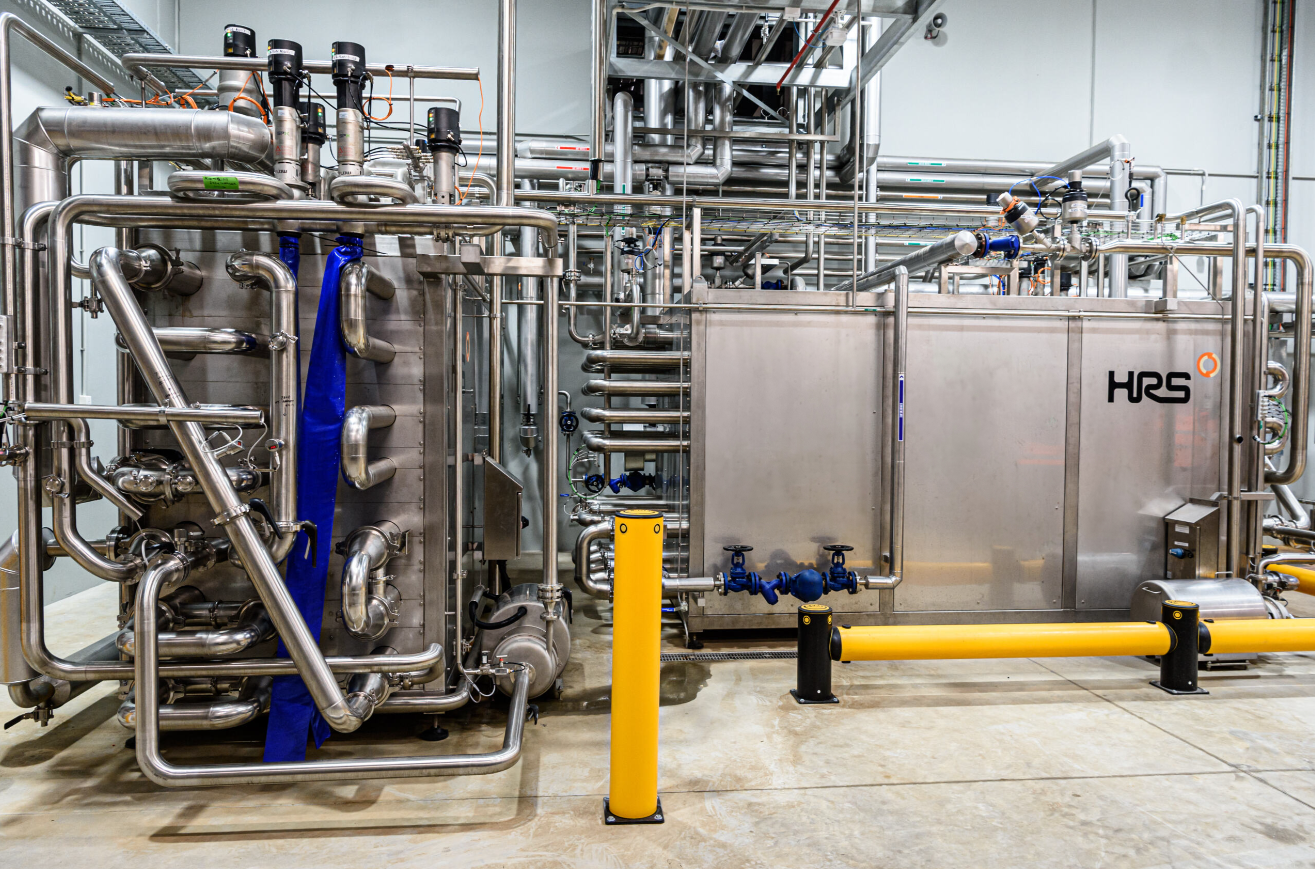EXPANSION OF GINGER BEER PRODUCTION
FLUID DYNAMICS, THE HEAT EXCHANGE SEPCIALIST, IS HRS’ REPRESENTATIVE IN AUSTRALIA & NEW ZEALAND
Brewed for three days, Bundaberg Ginger Beer is an iconic drink not just in Australia, but around the world. When manufacturer Bundaberg Brewed Drinks outgrew its production facility, a new cooker and thermaliser from HRS Heat Exchangers not only maintained the quality of its famous product, but also ensured the processes were as energy efficient as possible.

The Customer
Established by the Fleming family in Bundaberg, Queensland, in 1968, Bundaberg Brewed Drinks has grown throughout its history as demand for its premium non-alcoholic craft-brewed soft drinks has expanded. Continued increased demand meant that Bundaberg’s previous manufacturing facility was no longer large enough, and so it invested in a new green field project that would provide the company with the necessary space to accommodate future growth.
Delivery of the new production equipment was entrusted to long-term Bundaberg collaborator M. E. Engineering, an established process engineering company and systems integrator with particular experience in the food and beverage and distilling sectors.
The Challenge
The ginger beer brewing process includes several key stages, including grinding the dried ginger root, making the wort, fermenting with yeast, maturing and then mixing into the final recipe, before being filtered and bottled. Many of these stages require the ingredients or product to be heated or cooled and HRS were chosen to provide the necessary heat exchangers to provide hot water, clean-in-place (CIP) solutions, and product heating and cooling throughout the brewery.
The Solution
The HRS cooker and thermaliser are an integral part of Bundaberg’s Ginger Beer fermentation process, heating and cooling the wort as required. Both turnkey systems were supplied on process skids to facilitate installation and maintenance and are based around the proven HRS MI and MR Series of corrugated tube heat exchangers.
The cooker system, which is designed to process up to 18.6 tonnes of product each hour, uses steam to raise the product temperature above 100°C. This is achieved in two stages using an HRS MR Series heat exchanger with direct heat recovery reusing the heat removed when the product is cooled after cooking. A final cooling stage using an HRS MI Series heat exchanger lowers the product temperature further, to ambient conditions.
Thermalisation is a lower temperature alternative to pasteurisation, and the thermaliser supplied at Bundaberg Brewed Drinks uses two types of heat exchanger in different processes to provide sufficient capacity to treat 25.5 tonnes of product every hour. The skid-mounted solution uses both MI and MR Series heat exchangers to raise the product to the required temperatures using both hot water, and energy recovered from the subsequent cooling process. The cooling process, which also uses both MI and MR Series heat exchangers, returns the product to ambient temperature once thermalised.
Matt Brain, Project Manager at Bundaberg Brewed Drinks, commented, “One of the things we found when working with HRS was that they were able to extend the scope of their original brief in order to provide more options for us. Working with HRS has been a seamless experience. Their equipment is of exceptional quality, and the heat exchangers have all met our design criteria perfectly, ensuring our production runs smoothly and efficiently.”
Fluid Dynamics, the Heat Exchange Specialists, for all your heat exchanger needs
Advice • Design • Manufacture • Refurbishment • Repair • Service
